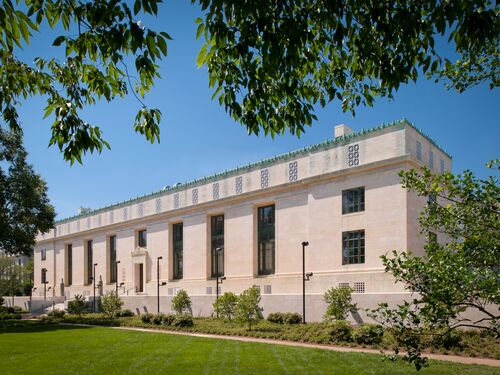An Update on Our Response to COVID-19: A Message from the Presidents of the NAS, NAE, and NAM
Statement
Last update September 14, 2020
Dear Friends of the National Academies,
In a matter of months, the coronavirus pandemic has triggered a global health, economic, and societal crisis of staggering proportions. A few countries have managed to slow the spread of COVID-19, but here in the United States, the virus continues to proliferate — and our most vulnerable communities are bearing a disproportionate share of the burden and suffering. Researchers have mobilized as never before to develop COVID-19 vaccines and treatments — with some promising preliminary results — and many across the private and public sectors are working on how to massively scale up critical vaccine production capacity and supply chains. But it could be many more months before effective vaccines are widely available. In the meantime, students and teachers are returning to school, whether virtually, in person, or both, and national, state, and local decision-makers are making difficult choices about how to balance the protection of public health and safety with the restoration of critical societal functions.
Science, engineering, and medicine are at the heart of finding solutions to this crisis. At the National Academies, we have developed a framework that will enable us to provide the evidence-based answers and guidance that society needs at every step of response and recovery — from solving the immediate challenges posed by the pandemic to eventually rebuilding a more robust, resilient nation and world. We want to update you on our ongoing work and some new initiatives underway.
Responding to the Pandemic
As the development of vaccines against SARS-CoV-2 progresses, policymakers need a plan to allocate them equitably, especially in the early months when supply will be limited. We recently mobilized an expert committee to provide a framework for policymakers and health authorities as they make hard choices about prioritization of vaccines. A preliminary version was released for public comment recently. The committee is now reviewing those comments and will issue its final guidance this fall. In addition, as many states and localities continue to struggle with obtaining adequate supplies of equipment for health care workers and other essential employees, we have launched a new, congressionally requested study on how to ensure the continuity of critical medical devices and drugs.
As communities began to make decisions about reopening K-12 schools, we provided timely guidance on key issues such as virus prevention strategies, costs, staffing, and equity, as well as the education risks — especially for K-5 and special needs students — of not receiving in-person classroom instruction. We released a report on how to collect genomic data on the virus — an essential component in tracking community spread and in the development of treatments and vaccines.
In addition, our Societal Experts Action Network (SEAN) — which taps expertise across a range of social, economic, and biomedical sciences — has identified promising strategies that decision-makers can use to encourage the adoption of protective behaviors such as wearing masks and cooperation with contact-tracing efforts. Earlier this summer, SEAN delivered rapid, actionable advice on how local decision-makers should consider and prioritize public health data such as reported confirmed cases and hospitalizations.
Since the early days of the pandemic, our standing committee on emerging infectious diseases has been hard at work, providing rapid responses that have informed the federal government on urgent questions such as the seasonality of the virus, the possibility of bioaerosol spread, and crisis standards of health care.
You’ll find our extensive collection of coronavirus-related resources here, and we hope you’ll share them with your community.
Expanding Our Reach
Given the urgency of the crisis, we are pursuing innovative ways to communicate with a wide range of audiences. To that end, we’ve hosted dozens of webinars to explore the latest findings on different aspects of the pandemic, and recently held a two-day online workshop to examine the latest evidence on aerosolized transmission of SARS-CoV-2 — an event that drew over 14,000 viewers. We have also engaged the public through social media and other platforms, such as our Based on Science website, which has drawn hundreds of thousands of visitors searching for clear, evidence-based information on the coronavirus.
In addition, our COVID-19 Engineering Call to Action has facilitated the crowdsourcing and brainstorming of creative ideas that could help protect public health and the economy during the pandemic, attracting many proposals from university students, seasoned engineers, and other experts. And the Leadership Consortium for a Value & Science-Driven Health System — comprised of senior leaders across health systems, industry, government, and academia — has assembled sector teams to identify vulnerabilities and strengths revealed through the COVID-19 pandemic, with the aim of identifying lessons for transformative improvements in system-wide effectiveness, efficiency, and equity.
As the pandemic has unfolded, it became clear that Black and African Americans as well as other communities of color are far more likely to get sick and to die from COVID-19 than the population as a whole. On top of this, the nation is in the midst of a national awakening about police brutality and long-standing racial injustice in our systems of health, education, employment, and justice. We enlisted our Roundtable on Black Men and Black Women in Science, Engineering, and Medicine to explore COVID-19 and related social justice issues, and have hosted several webinars specifically geared toward examining different facets of the pandemic’s effects on vulnerable communities.
We are planning to launch a major, congressionally requested study this fall on the effects of racism in academic science, engineering, and medicine. And within our own institution, we are taking a number of steps to ensure that issues of equity, diversity, and inclusion are a component in all of our studies and activities, and are taking action to increase diversity of our elected members, volunteers, and staff.
Preparing for Long-Term Recovery
Immediate challenges related to the pandemic are rightly the priority for decision-makers, but it is also important to begin planning now to enable a strong long-term recovery. With that goal in mind, we have launched the Response and Resilient Recovery Strategic Science Initiative, which will bring together multidisciplinary teams to conduct rapid, scenario-based analyses that consider a range of futures and their possible consequences for health, the environment, the economy, and infrastructure.
For instance, teams could examine scenarios such as vulnerabilities in the food supply chain, the financial viability of hospitals and the health care system, or the risks posed to research universities. The goal will be to identify resilient strategies and road maps that anticipate vulnerabilities with approximate levels of scientific uncertainty, and point to potential interventions. Our executive council guiding this work consists of luminary leaders from government, industry, academia, and civil society.
On the global front, we recognize that the coronavirus pandemic is a crisis that will not be solved anywhere until it is solved everywhere, and that international collaboration in science, engineering, and medicine is essential to conquering and recovering from this virus. We are communicating regularly with our partner Academies and other experts around the world to share expertise, ideas, and information.
As we move forward, we continue to engage regularly with Congress, our federal sponsors, and our philanthropic partners. We are deeply grateful to our volunteers, Academy members, and talented staff, whose invaluable expertise and dedication to our mission during these trying times make all of this work possible.
Thank you for your ongoing support. We are confident, that with your help, science, engineering, and medicine can help deliver society from this pandemic, and that a brighter future lies ahead.
Marcia McNutt
President, National Academy of Sciences
John L. Anderson
President, National Academy of Engineering
Victor J. Dzau
President, National Academy of Medicine


